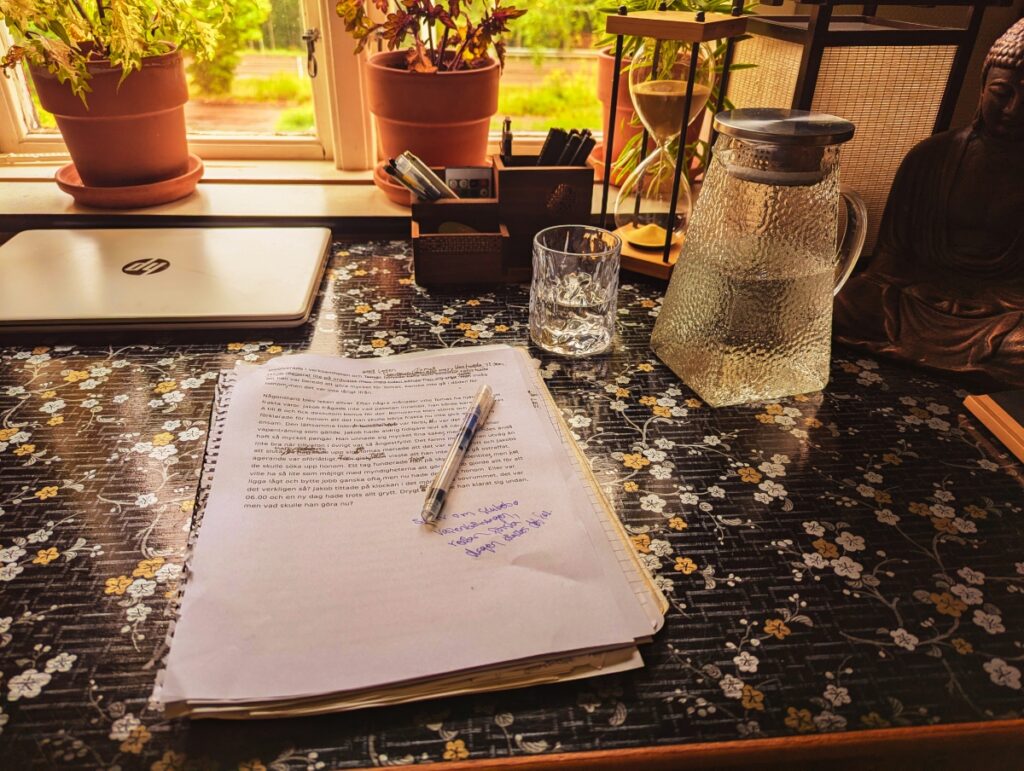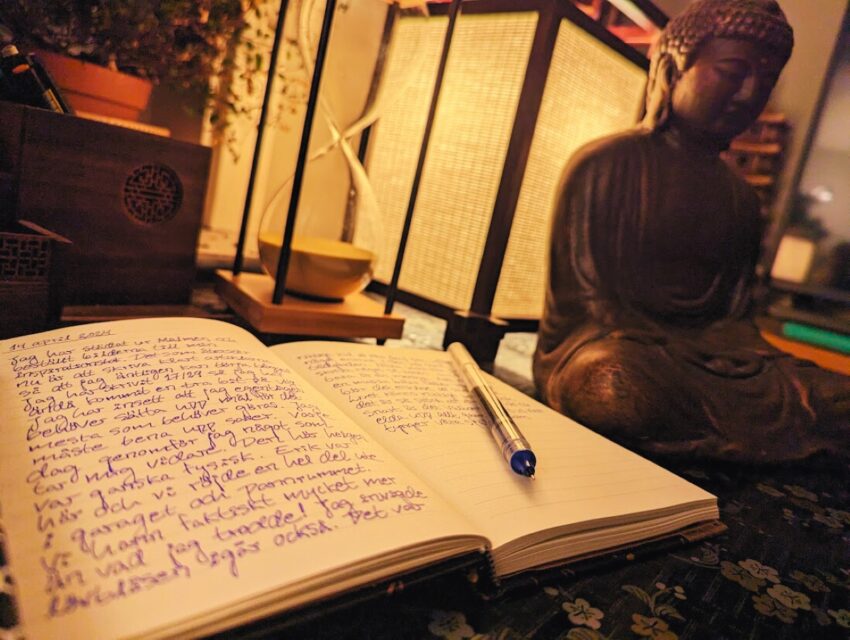My First Encounter with Writer’s Block
I didn’t truly understand writer’s block until I got stuck on chapter 6 for a long time. No matter what I did, nothing I wrote there felt right. At first, I considered skipping chapter 6 and moving on to chapter 7, but that didn’t feel right either. So, I decided to dig deeper into why chapter 6 was so difficult to write.
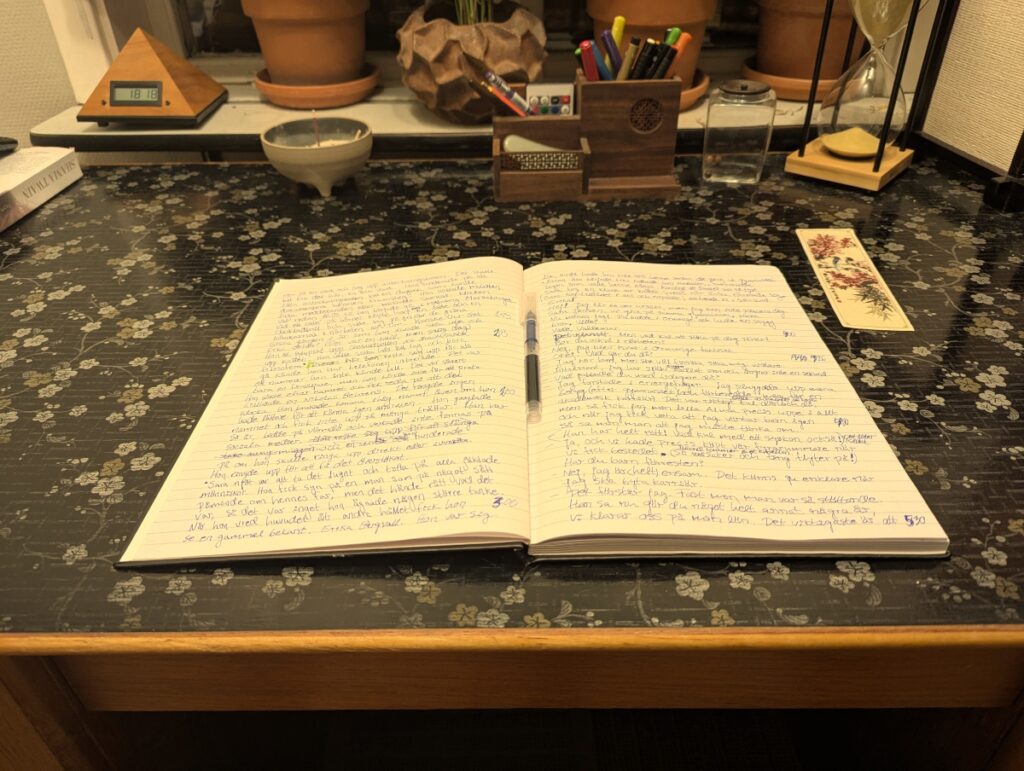
The Character That Didn’t Fit
It all revolved around a character who felt very complex. I wasn’t very familiar with the type of character I was writing about. It required too much research, and that made my writing feel inauthentic. After much deliberation, I realized I had to remove the character. What a relief that was. Suddenly, the writing flowed again, and I haven’t experienced writer’s block since.
The Burden of Expectations
I sometimes get frustrated with myself over the time I lost, but then I remind myself that it’s not such a big deal. After all, this is my first book, and it’s a huge project. In a way, writer’s block is all about expectations. You have a vision of what you want to achieve, but you’re not quite getting there. That can make the whole project seem meaningless, leaving you questioning whether it will ever turn into a book.
Less Is More
I wanted to incorporate as much as possible to make the book great. I forgot to keep in mind that less is more. My goal is to write a book that is easy to read and relatable to many people. If I write a second book later, I know I need to plan better—thinking through the characters and the storyline thoroughly before I start writing.
Character Profiles
To avoid keeping all the character details in my head, I created character profiles early on for my main characters. I can’t show what the profiles look like because I used pictures of celebrities, but I based them on this list.
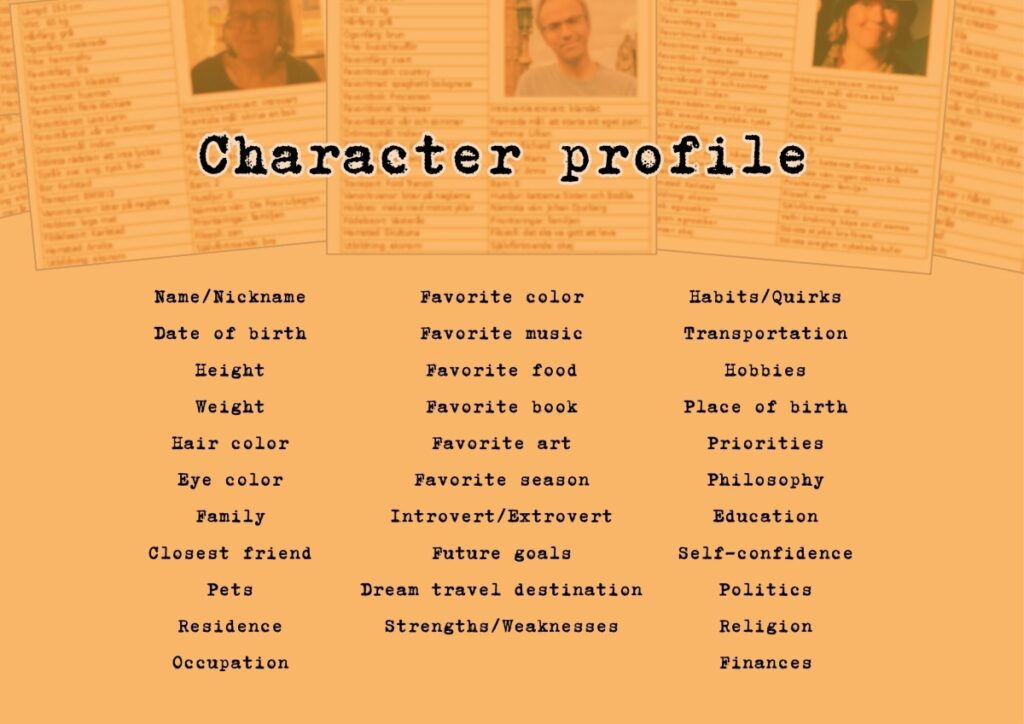
Know Thyself
I needed to get to know myself better to avoid getting stuck again. The key was to be certain I could deliver on my own expectations. Could I truly depict everything the way I imagined? When I planned the book in more detail after the writer’s block in chapter 6, I focused more on visualization. I needed to see the scenes more clearly. I’d say the clearer you can visualize the text, the more likely it is that you’ll be able to execute it properly.
How I Planned the Book
We’re all different, but I believe most book manuscripts benefit from a clear structure. What do you want to say with your book? You can start by sketching out a summary of the story and then breaking it down into chapters. I prefer writing my book in chronological order. The best part of this approach is that the beginning is often the most challenging, as it involves introducing several characters. Once the characters are introduced, the focus shifts to the story, which makes the book easier to write over time.
My Structure
I decided early on that my book would consist of 20 chapters. Each chapter is divided into smaller scenes. A chapter is considered complete when I’ve written between 2,500 and 3,000 words. If I land at 2,000 words and can’t think of anything more, then that’s fine. It’s still good to have some guidelines so the chapters end up being roughly the same length.
A Preliminary Outline with the Final Scene First
When I planned the scenes in broad strokes, I started with the final scene and worked my way backward. You might wonder how detailed my chapter planning is—I’ve mostly written a rough outline of what should happen. I have a notebook where I list the key events in each chapter. Things change along the way, but it’s good to have a foundation to work from.
Dictation Makes a Huge Difference
Over the past few months, I’ve been using dictation to speed up my writing, and I’m proud to say that it works for me. This method has significantly improved my productivity and helped me get more of my ideas down quickly.
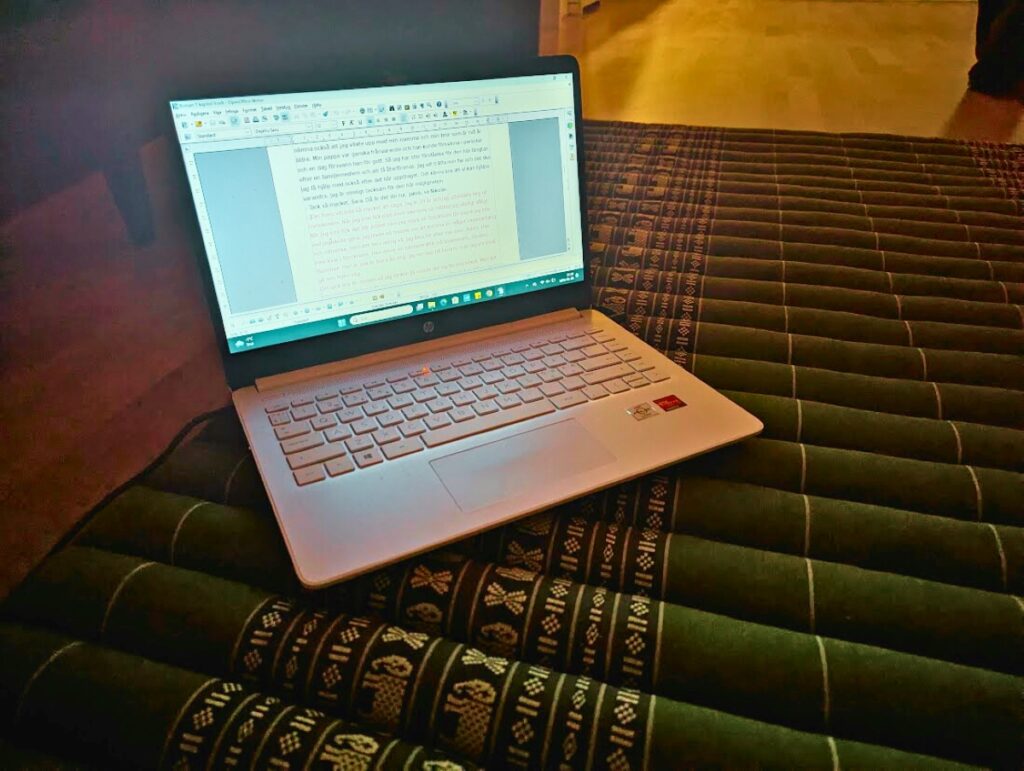
Research Can Take a Lot of Time
Since I’m writing about a place in Switzerland that I’ve never visited, research has been a bit tricky. Questions easily arise: Why did my character choose to live there? What’s it like to live there? How’s the weather? I’ve decided to solve this by not writing too much about the location—only a few chapters will take place there.
A Place I Know
Then it hit me—my character could be somewhere else. A small village in Sicily came to mind, and suddenly everything clicked. Having visited there before and with a deep longing to return, I found it much easier to picture the setting. That makes writing about it much easier. Or at least, I think so—I haven’t written that part yet.
What a Journey This Is
Writing my debut novel is an amazing experience. I’ve been working on this book for so long now that I’m almost tired of it. But I’ve made a commitment to myself to publish at least one book, no matter what. I’m currently on chapter 11 out of 20, which means I’m about halfway through the first draft. I look forward to this being the year when I finish a large part of the book. I try to write three times a week, and it has paid off. The key is breaking the work into smaller tasks instead of constantly having to restart. Keeping the project alive makes everything much easier.
See you next time!
